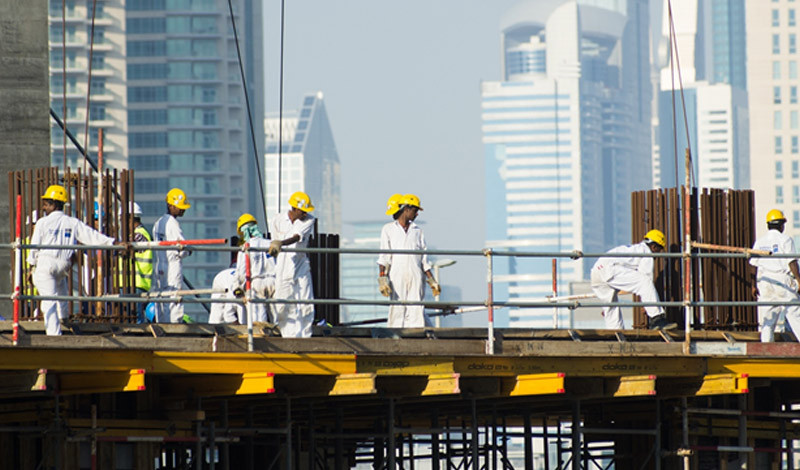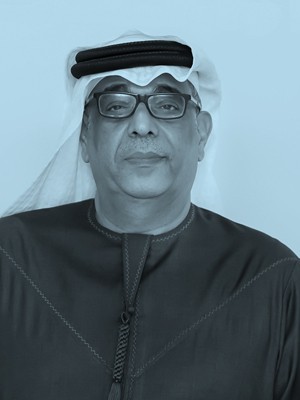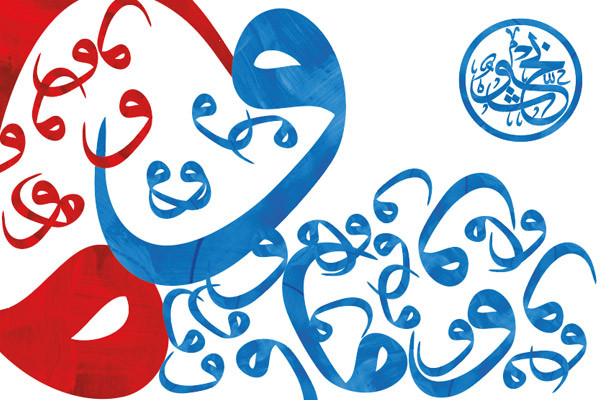Foreign Labor: Time for a Review
A friend of mine from Sharjah once told me that he had hired an expatriate electrician to fix a water heater in his house. It took the electrician an hour to finish his work and claim that the problem was fixed. Shortly after the electrician left, my friend used the shower and got an electrical shock. After further investigation, he realized that the whole water network in his house was electrified.

- by Mohamed Ahmed Yusf Al Obaidly ,
- Tuesday, 30th August, 2016
The mistake by the electrician could have led to one or more member of the family being killed. The terrifying idea of losing a child, the wife, the maid or the father becomes even worse with the feeling of deception and being fooled by a person who claimed to be an expert electrician, while in fact not knowing anything about the trade, and then disappeared completely.
The controversy about foreign labor among Emiratis and GCC usually pops up following dramatic incidents. Death of the baby girl in the UAE, Salama, last July due to severe beating on the head by the household's foreign maid, and the murder of the Jordanian child Obaida by a Jordanian resident, who turned out to have a criminal record in his home country, two months ago are examples of these incidents.
In both cases, the question raised amongst citizens is: “How did these people enter our country?”
Some Emiratis even think that there are loopholes that allowed the entrance and residency of such foreigners.
In in most cases, the victims’ parents receive some of the blame in conversations about the indicents. Obaida’s father was blamed for his carelessness allowing for the perpetrator to easily pick up Obaida.While Salama’s family, and other UAE national families, are blamed for depending completely on foreign maids in raising and taking care of their children.
In fact, the dense foreign labor existence is repeatedly questioned by Emiratis and citizens of the GCC, especially after similar tragedies. However, answers are often delayed.
Who is really responsible for this mess? Are they the citizens who can no longer dispose of the labor foreign workers? Or the foreign labor of the poor societies and states? Or the governments and policies that are still confined to distinguish between required qualified experts and the surplus foreign labor
This frequent argument highlights important facts about the foreign labor in the UAE and the GCC in general. It also suggests perceptions to correct the defects that cause problems in the market and the national economy, beside its direct impact on the daily social life.
Experience has shown that bringing a foreign worker does not require more than filling out a form. No matter the number of conditions required by the authorities to employ a foreigner, the verification process of workers’ skills and potential are subject to filling a piece of paper though. No entity or authority is responsible for verifying and hence proving the attached certificates of individual foreign workers or the ones submitted by agencies. This loophole provided access to thousands of unskilled and un-qualified labor who do not hesitate to take any job. Eventually, this will lead to degradation in the skills of the market and the quality of the services. The citizen who was about to die, or one of his family members, with the electrified water caused by the cheating of a foreign labor is an example that can be generalized. And there is a rumor in the GCC that one of the Asian countries that exports labors is allowing convicted prisoners to travel to Gulf region as foreign labor to ease its burden.
Training
Training is another factor in this issue. Foreign labor participates in different technical, electrical, plumbing, construction and services. However, they only get a minimal training required that hardly fulfil their employers’ needs, whom inturn actually expect them to have previous knowledge and experience to do their jobs.
For example, most of the women who are brought from the villages and countryside of India, Sri Lanka, Philippines or Ethiopia as nannies, do not have any certificates or qualifications to take care of children. They are just poor women who despairingly need a job. However, GCC families deal with maids and nannies brought through services’ offices as if they are expert and have enough knowledge to raise children and take care of them. Similarly, when men employee workers who present themselves as experts, they discover later that they do not know the basics of the required work. Simply because they are not what they claim to be.
Hence, the policies that led to flooding the market with thousands of foreign workers, have a negative effect on the market’s skill level. Moreover, it has contributed to the presence of new types of foreigner’s crime in the GCC. In spite of its low statistics, these crimes, such as that beating a baby girl to death and others, represent an alarm against the current policies of bringing foreign labor without scrutiny and precautionary procedures.
The repeated discussion about the foreign labor plus the social shocks triggered by the later mentioned crimes and other challenges, all these together compel us to review and enhance the policies of importing labor. This also related to developing a market with high expectations which requires a quality of labor, not just quantity.
The ugly crimes, such as the murder of the child Obaida by a Jordanian citizen with criminal records, emphasized the defects in visa issuing procedures which allowed such a person with a criminal record to enter the UAE and stay beyond his residency validity and commit such a crime. As a reaction to this crime, most commentators of local Arabic and English newspapers demanded more restrictions in visa issuing procedures that involve request for records of people who apply for entrance visa. Adding the beggars’ cases who entered the United Arab Emirates with visit visas, makes the policy review an essential necessity.
Labor’s importing procedures are very critical when considering security. It is a matter of trusting the people who take care of our children, carry out our business and simply run our daily life.

Mohamed Ahmed Yusf Al Obaidly
Consultant, Regional Affairs (former)
Read More
Areas of Expertise
- Regional Affairs
- Public policy
- Geostrategic Affairs
Education
- Studied Economy & Political Sciences -Cairo University
Bio
With his veteran career in journalism, Al-Obaidly has an extensive, firsthand experience in regional and international affairs. He covered the first and second Gulf War, while also covering Palestinian and Sudanese affairs. In the last decade he started to focus on Political Islam movements.
Al-Obaidly is a regular commentator and columnist, frequently published in local Bahraini media and several others regionallly. He also worked as an editor in the Monthly Le Mobdediplomatique (Arabic Edition) from 2008 – 2010.
These backgrounds and expertise formed a solid base to move to the research and studies field.

